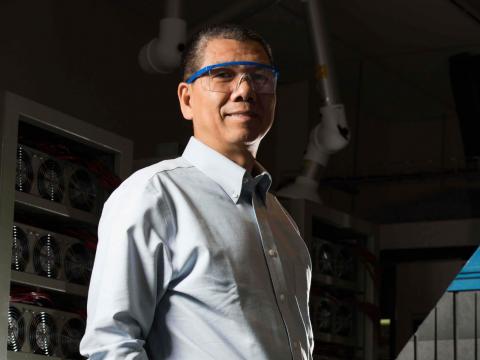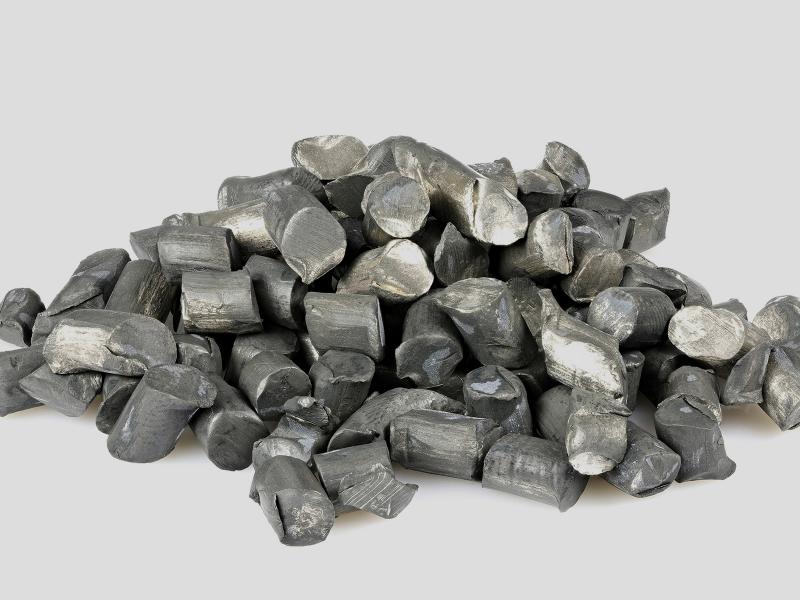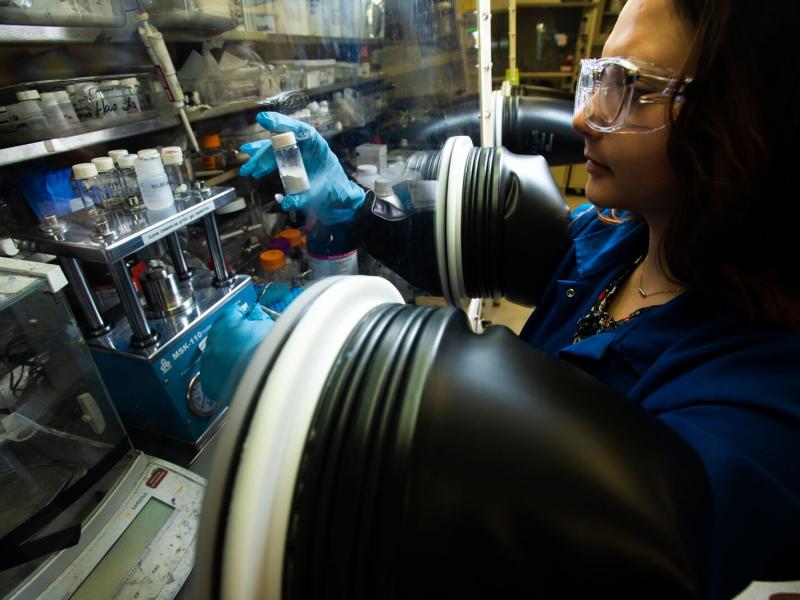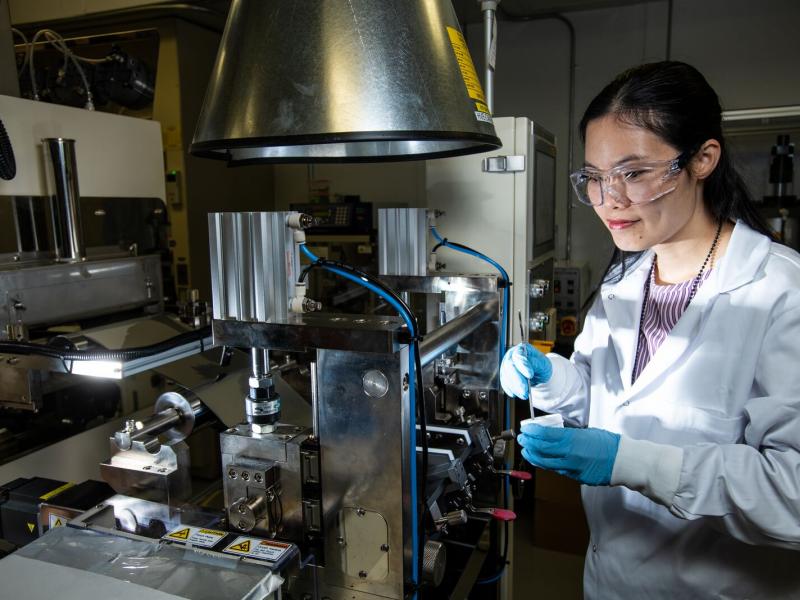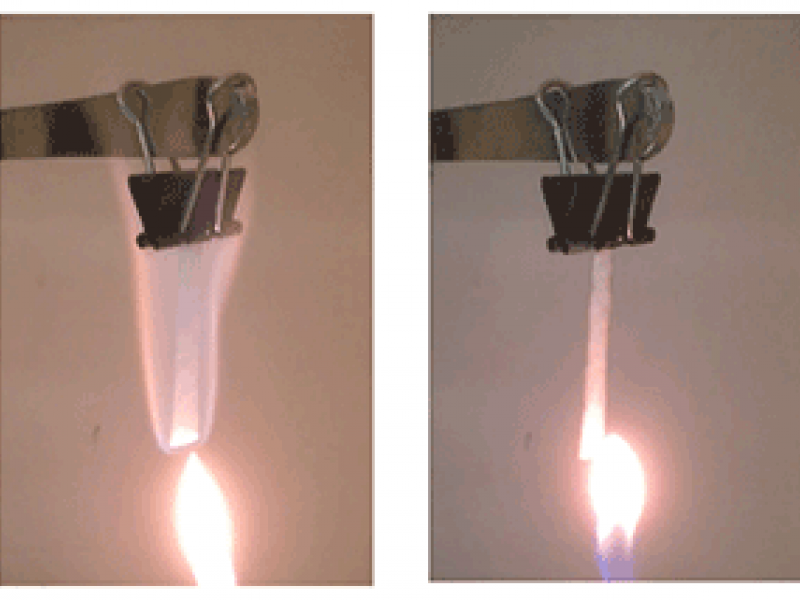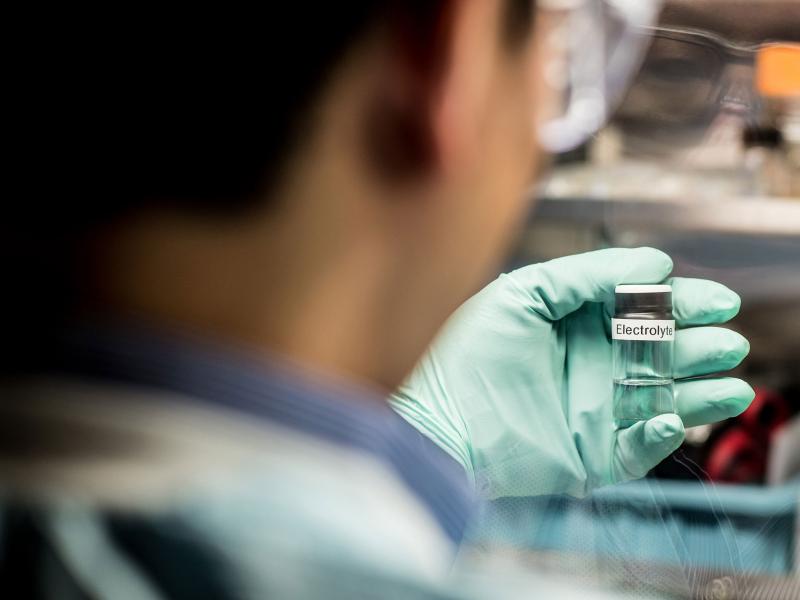
The Innovation Center for Battery500 Consortium
The Innovation Center for Battery500 Consortium
A collaboration among national labs and academia for more reliable, high-performing vehicle batteries
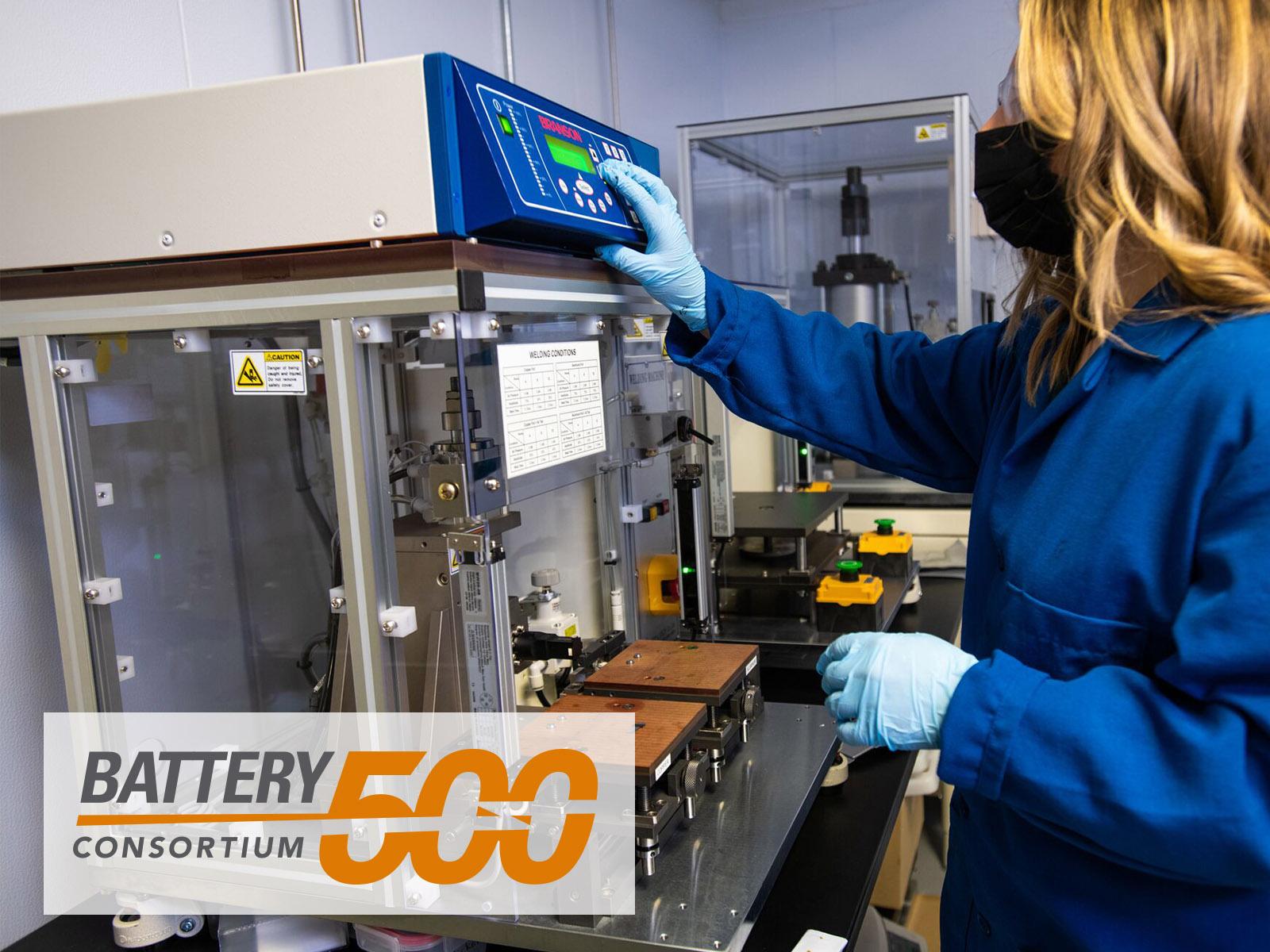
Battery500 is a collaboration among the national laboratories, academia, and industry to create higher-performing batteries.
(Original photo by Andrea Starr, composite image by Shannon Colson | Pacific Northwest National Laboratory)
